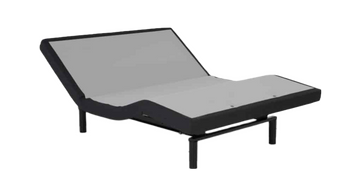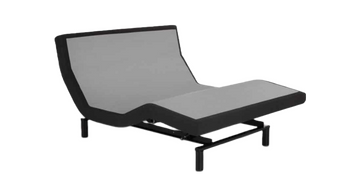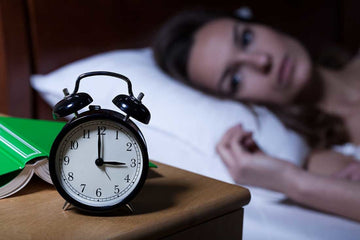In total, it is believed that around one-fifth of American adults are living with chronic pain. While this statistic is undeniably alarming in and of itself, there is a secondary, underlying cause for concern: 50-80% of people with chronic pain report sleep difficulties and insomnia.
About insomnia
Insomnia is a catch-all term used to describe a wide variety of problems people experience in relation to sleep. It includes:
- Difficulties falling asleep
- Difficulties staying asleep – for example, waking numerous times during the night
- Waking up earlier than the individual would prefer and being unable to get back to sleep
There are many reasons that people experience insomnia, such as stress, anxiety, and medical conditions such as hypothyroidism. However, pain is one of the most common reasons people experience insomnia.
What are the consequences of insomnia for people with chronic pain?
The inability to achieve adequate, restorative sleep due to insomnia deprives the body of its ability to perform its own “repair work” to muscles, limbs, and tissue.
- The individual cannot sleep due to chronic pain
- The same individual becomes sleep deprived as a result
- The individual then experiences more intense pain as a result of their sleep deprivation
Why are people with chronic pain more likely to experience insomnia?
Anyone who lives with chronic pain will be familiar with the need for distraction throughout their daily lives. The more aware a person is of the pain they are experiencing, the worse the pain feels. During the day, most people with chronic pain are kept busy by their usual routines – they go to work, see their friends, or immerse themselves in an enjoyable TV show.
However, at night, there are far fewer distractions available. In most cases, this is entirely by design; good sleep hygiene practices involve removing distractions in order to fall asleep – which is excellent advice… unless the individual is relying on distractions to manage their pain levels. With the lights dim, the TV off, and no one to talk to, a person experiencing chronic pain has very little to focus on except for their pain.
This hyperfocus on pain is not only distressing due to the pain individuals experience, but causes a secondary distress in the form of stress. The less they can sleep, the more worried they become, which in turn heightens their pain sensitivity – another vicious cycle that worsens an already difficult situation.
Unfortunately, even if the individual does eventually manage to fall asleep, they are unlikely to stay fully asleep. Instead, they will experience “microarousals”; essentially, a phase of sleep that is lighter and less restorative – a kind of half-state, where the individual is not awake, but they’re also not deeply asleep. This low quality of sleep means that a person can technically have slept through the night, but they still wake the next morning feeling tired and groggy.












